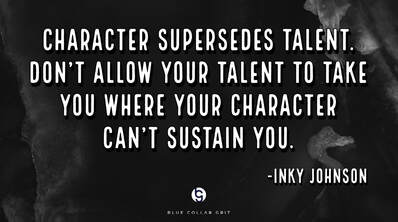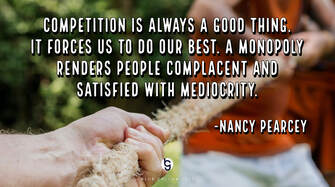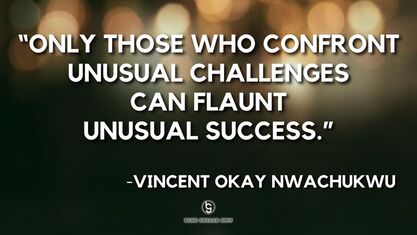Dealing Hope5 things you should say to your team more often.
5 things you should say to your boss more often.
5 things you should say to your children more often.
Why Should We Care? Far too often we hold back on sharing our appreciation and gratitude, concerned we will sound weird or different. Say it anyway. We only have one opportunity for each of these perishable gifts. Don’t miss your window. No one regrets sharing feelings of appreciation. What we regret is holding back. I’ve always believed motivation is internal in the best performers. They don’t rely on external forces to determine their motivation from day to day. However, I do believe leaders have a responsibility to deal hope to those we lead. All the examples above are simple ways to do just that, deal hope. As leaders we are often drawn to focus on the weaknesses of our team members - what they can’t do, what they struggle with. As we begin to become more aware of our team members’ strengths, we seem to find more. The more willing we are to look for chances to lift others, the more opportunities we will recognize to do so. REAL TALK - Action Steps There are hundreds of ways to deal hope, and every teammate is different. Trust your gut and live in the courage that will allow you to share all the positives your teammates bring to the table.
Leading is a gift that needs to be shared. Dealing hope is how we share that gift. Look for opportunities with your team, be intentional with your words and actions. Nothing is more fulfilling than helping others achieve things they never thought were possible. We do that by dealing hope! For more information on building excellence in your teams, visit us at www.bluecollargrit.com. We would love to know how we could help!
0 Comments
Be a Real OneWe spend a lot of our life pretending.
As children, it was a game. As adults, it’s living. We put on a face of happiness. We pretend to be confident. We fake it until we make it, right? Well, maybe we shouldn’t. Maybe we should spend more time on just being real. Why Should We Care? I remember getting ready for school one day when I was in middle school, struggling to decide on which shirt to wear. My dad happened to walk by my room as I was switching shirts in front of the mirror. Dad stopped, assessed the situation and brought clarity to the situation for me with one frank comment: “People don’t care what you’re wearing, they’re too worried about what they’re wearing.” It made sense to me and helped me realize something I couldn’t really articulate at the time, but I knew I didn’t like about myself at the time: I was fake. My struggle to pick the right shirt was nothing more than a futile effort to appease others. My decisions, in more than my attire, were based on what I wanted others to think, not what I thought. Then I noticed it was everywhere around me too. Now in the real world, beyond middle school, I’ve realized it isn’t any better - likely worse. So much of the time we’re fumbling around as characters in a fictional drama, acting out our next role in the day. An encounter with someone that is authentic is like finding a four leaf clover. It’s to the point now that if you want to be different, just be real. You’ll stick out like a sore thumb. We are all drawn to authentic people, yet we work to avoid it ourselves unsure that our authentic self will be accepted. Unfortunately, we fail to realize it’s the authentic that others are looking to accept, not the things we are trying to fix. The scars, blemishes, and failures that we are constantly pulling the blinds over are the exact things that harden relationships and build trust. REAL TALK - Action Steps Being ‘Real’ is clearly not easy, but it’s also not hard. It’s simply a matter of choice. We can choose to allow ourselves to be seen for who we really are or we can armor up and hide the very things that would provide the strongest connection to others. We like to make it hard by hammering ourselves with a barrage of fabricated stories to justify our facade.
Being a real one is one of the greatest compliments we can get from those we lead. It says we are vulnerable, yet confident ... flawed, yet courageous. And, please notice, real is rooted in what we do, not the words we say. For more information on building excellence in your teams, visit us at www.bluecollargrit.com. We would love to know how we could help! Good EnoughDuring a basketball practice my junior year one of my teammates spilled his water bottle on the court during a break. Coaches and players grabbed towels and practice jerseys to wipe it up as quickly as possible. As one of the players was finishing up, he made his last swipe and frustratedly exclaimed “Good enough” as he got up off his knees and prepared to begin practice again.
At that same time, Coach Z was standing along the side holding a towel waiting for this player to finish. As the player passed him, Z, in a voice loud enough for everyone to hear replied frankly, “Good enough never is.” He dropped to his knee and finished wiping up a few remaining wet spots and we began practice again. No lecture or explanation, he just let it hang there. I had always remembered Z’s comment, but it had not registered completely with me until years later when I began intentionally working to grow as a leader. Why Should We Care? There is one thing all people that people willing to settle for ‘good enough’ have in common: they’re willing to compromise their standards. See, the problem isn’t that job, activity, or duty. The problem is what ‘good enough’ leads to, which is more compromises. There are undoubtedly things you do daily that just need to be completed at an adequate level. They don’t need to be perfect or require your best effort. However, we should be striving to limit these items if for no other reason than it violates our standards. We’re all familiar with the phrase gateway drugs, but we often fail to acknowledge the actual issue with any damaging behavior. It’s not gateway drugs that are the problem, it’s the gateway habits that precede the drugs. The same can be said for ‘good enough’. It’s a gateway habit leading to a gradual decline in our personal standards. Eventually we become master negotiators with ourselves on what is, and isn’t acceptable. REAL TALK - Action Steps So, how do we fight the societal tendency to accept ‘good enough’ from ourselves and those we lead? It’s a challenge, no doubt. The initial focus must be on ourselves. Afterall, no one is going to truly listen to a ‘good enough’ leader.
Even the phrase ‘good enough’ sounds like you’re settling - like yea I’ll do it, but it’s really not that important so I’ll just do the minimum so I can say it’s done. Who wants that to be their standard for anything? Simplify to allow yourself to consistently maintain your personal standards, then commit to living up to that standard moment by moment. For more information on building excellence in your teams, visit us at www.bluecollargrit.com. We would love to know how we could help! Chest PoundingYour accomplishment is truly extraordinary. Among all the other basketball players in the world, it was your 3 pointer that will go down as the greatest of all time. Never to be duplicated or surpassed. And that you did it all by yourself is astonishing. You were somehow able to put yourself into the game, throw the ball inbounds to yourself, and set yourself a screen … then make a shot from twenty-five feet away. Remarkable. On top of that, you developed that phenomenal talent on your own as well. All of the training and practice with no help or guidance. All those lonely days shooting and getting your own rebound. All the sacrifices to earn enough money to pay for your own shoes.
Then, to make a shot that thousands of other high school players make on a regular basis and pros like Steph Curry have made over three thousand times in their NBA careers - that deserves a chest pound. Because you did it, right? All you … I use the basketball example, but it’s really in all professions and walks of life. We see it all around us and, at least for me, fall into it from time to time. It’s human nature, but it’s dangerous for a leader. We would serve our team and leadership credibility well if we were better at recognizing and addressing it in ourselves and those we lead. Why Should We Care? Chest pounding is usually welcomed in the world of competition. Commentators and spectators will often remark on the confidence or fearlessness of the athlete or coworkers will marvel at the relentlessness of the executive climbing the ladder. This celebration is a mirage. It’s not confident and fearless, it’s unsure and scared. They are merely trying to convince themselves that they are confident. The very best, those that are narrowing in on excellence, realize how it pulls apart their team by focusing on themselves. As soon as one task is completed, they’ve already turned their attention to the next. Those stuck on celebrating their own trivial success are amateurs pretending to be pros. The bigger issue is that it’s not only a mirage, but it's a mirage built on lies. The number of people responsible for the ‘individual’ success that you think you have achieved is staggering. And, trying to claim that accomplishment for yourself is selfish, if not narcissistic. We’ve literally done nothing on our own. Acting like we are solely responsible for our success is not only deceiving to those we lead, but also to ourselves. Chest pounding celebrations only further cement this delusion in our heads. REAL TALK - Action Steps The fight is against the ego. We can never escape it, but we can learn to manage it. And, modeling it as leaders is critical. Humility breeds humility and arrogance breeds arrogance. Here are a few ways we can look outside of ourselves and begin pointing to others rather than pounding our own chest.
I’m in the world of youth sports right now, specifically AAU basketball. To say chest pounding is common would be a gross understatement. But, it’s a significant issue throughout society. As leaders, it’s our responsibility to model the characteristics that lead to excellence. One of them, without question, is humility. Stop pounding your chest and start patting someone else’s back. For more information on building excellence in your teams, visit us at www.bluecollargrit.com. We would love to know how we could help! |
About bcI'm a teacher, coach, and parent seeking excellence while defining success on my own terms. Archives
July 2024
Categories |





 RSS Feed
RSS Feed